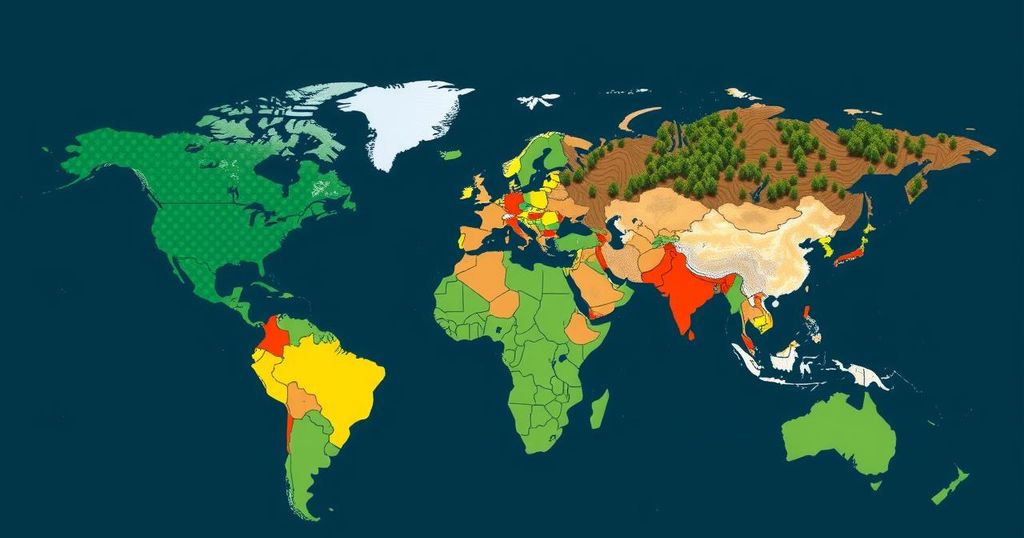Wealthy Nations Taking Steps to Compensate for Climate Change Damages in Developing Countries

Wealthy nations are beginning to provide financial compensation for climate change damages to poorer countries, such as Malawi, where Cyclone Freddy caused significant destruction. A new funding initiative termed “loss and damage” aims to support affected families, who often lack resources for recovery. While $720 million has been pledged, experts warn it may be insufficient as climate-related disasters intensify. The COP29 summit negotiates further funding obligations as countries recognize the increasing need for immediate action.
Recent trends illustrate that affluent nations are beginning to allocate funding to aid poorer countries that are severely affected by climate change. In 2023, Cyclone Freddy devastated southern Malawi, displacing families and causing significant damage to infrastructure. One such individual, Christopher Bingala, received approximately $750 in financial aid, demonstrating a burgeoning initiative labeled “loss and damage” compensation that provides financial support for the adverse impacts of climate change. Despite a pledge of around $720 million from wealthier nations, experts express concern that this amount may be insufficient given the worsening climate crisis.
The ongoing COP29 climate summit in Baku, Azerbaijan, sees nations negotiating the financial obligations owed to developing countries, which are facing increasing climate-related challenges. Cyclone Freddy alone displaced 650,000 Malawi residents, highlighting the urgency of the situation. As rural communities are particularly vulnerable to disasters, the financial support allows individuals like Bingala to rebuild and recover, despite their limited resources.
Scotland has pioneered this funding initiative aimed at alleviating climate-related losses, allowing families in Malawi to rebuild homes and restore livelihoods. Each affected family received substantial cash grants, helping them to invest in necessities and education. The pilot program in Malawi reflects a broader framework established at the previous climate summit, which aims to systematically compensate lower-income countries that are disproportionately affected by climate disasters, despite contributing minimally to global carbon emissions.
As the frequency and severity of climate-related disasters escalate, the financial need for loss and damage compensation is expected to rise significantly; estimates suggest a requirement of $250 billion annually by 2030. Leaders from impacted nations emphasize the critical nature of addressing climate change, as neglecting this growing crisis poses risks not only to their countries but also to global stability. In conclusion, while recent initiatives to fund loss and damage signify a promising step forward, substantial commitment from wealthier nations will be essential to meet the profound challenges posed by climate change.
The article addresses the emerging trend of wealthier nations providing financial compensation to poorer countries affected by climate disasters. It focuses on a specific instance in Malawi, where Cyclone Freddy caused widespread destruction. The concept of “loss and damage” compensation emerges as a new form of funding designed to assist those most affected by climate disruptions, underscoring the global disparities in responsibility and impact related to climate change. The text also highlights the negotiations occurring during the COP29 climate summit, aiming to establish frameworks for providing sufficient financial support to developing nations.
In summary, the initiative to channel financial aid for the damages caused by climate change represents a critical step toward addressing the inequities faced by poorer countries. While the early efforts in Malawi exemplify the potential of this compensation model, substantial long-term funding commitments from wealthier nations will be crucial to adequately address the anticipated increase in climate-related disasters, ensuring that vulnerable populations can rebuild and thrive despite the ongoing challenges posed by climate change.
Original Source: www.knba.org






